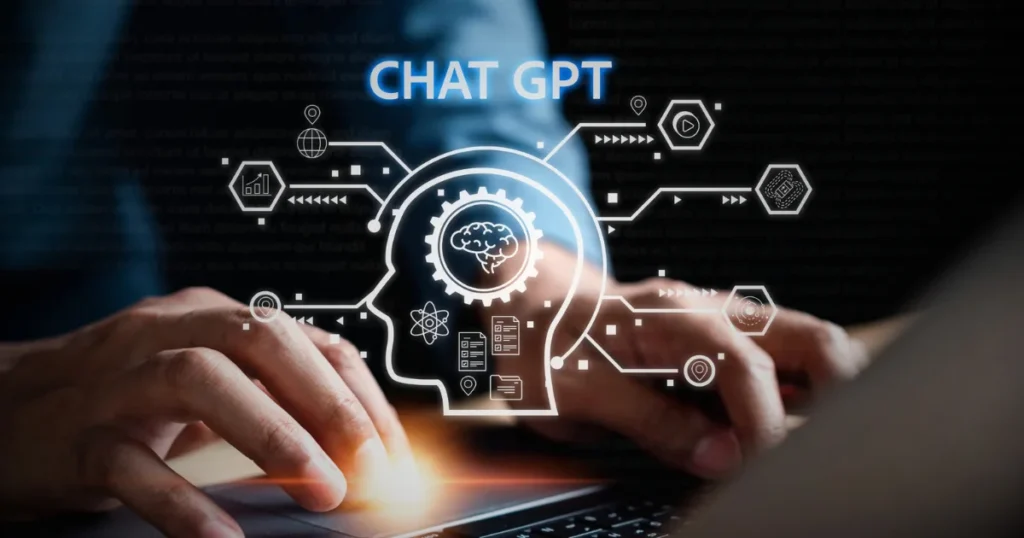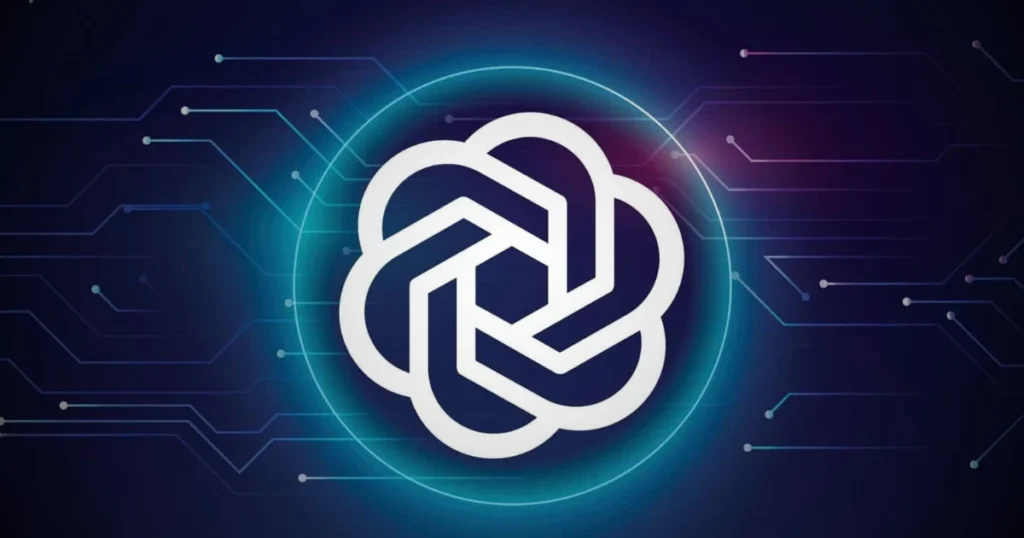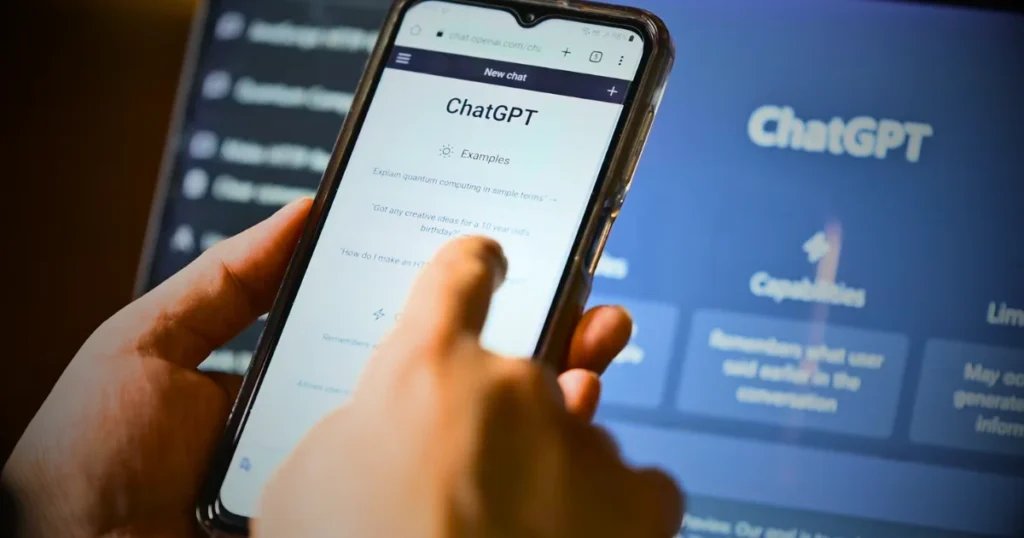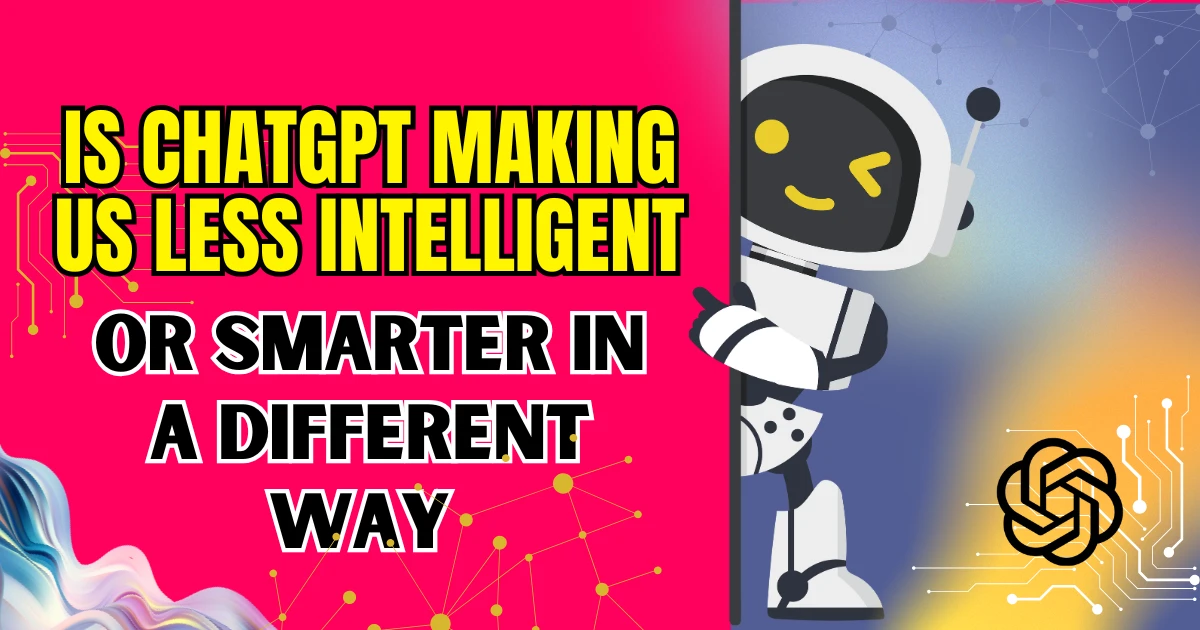Table of Contents
Is ChatGPT Making Us Less Intelligent or Smarter: In 2008, The Atlantic sparked debate with its headline story: Is Google Making Us Stupid? In the lengthy essay, which Nicholas Carr later turned into a book, he argued that technology—particularly search engines—was diminishing Americans’ capacity for deep thought and memory retention.
Carr’s main worry centered on the notion that people didn’t need to remember facts or information anymore, since they could simply look up answers online. There is some validity to this argument, but search engines still demand users to employ critical thinking when interpreting and understanding the information they find.

The Evolution from Search Engines to Generative AI
Today, we’re witnessing an even more dramatic change in technology. The advent of tools like ChatGPT signals a shift: users are no longer just offloading memory but perhaps even the process of thinking itself. Generative AI can do more than just fetch facts—it can generate, explain, and summarize information. This marks a key turning point, as generative AI could, in effect, substitute for human thought and creativity.
This leads to an important question: Is ChatGPT making us less intelligent?
As someone who researches information systems and has worked with AI for over twenty years, I’ve observed this evolution up close. With more people relying on AI to handle cognitive tasks, it’s essential to assess what benefits we gain and what abilities we may risk losing.

The Illusion of Knowledge: Dunning‑Kruger and AI
Generative AI is reshaping how information is accessed and processed. Many people now skip sifting through multiple sources and grappling with conflicting perspectives, instead accepting the concise, polished output AI provides within moments. While the accuracy of these responses can vary, their speed and clarity are undeniable. This shift has already made a significant impact on our work routines and thinking habits.
However, the ease can have drawbacks. When we allow AI to complete our tasks and think for us, we might be weakening our skills in critical analysis, complex problem‑solving, and deep learning. Although current research is limited, being passive recipients of AI‑generated material may suppress curiosity, shorten attention spans, and create a reliance that stunts cognitive growth over time.
To better grasp the issue, consider the Dunning‑Kruger effect. This principle describes how people with the least knowledge are often the most overconfident, unaware of what they lack. More skilled individuals, recognizing the complexities involved, tend to be less certain.
This idea relates to generative AI in that some users rely on ChatGPT to replace their own efforts, while others use it to build on their knowledge. Those who lean completely on AI might think they understand a topic—when in fact, they are simply repeating what the AI provides. In this way, AI can give an illusion of knowledge, reducing genuine intellectual effort.
This pattern creates two different ways people engage with AI. Some become stranded at the “peak of Mount Stupid,” using these tools instead of their own thinking; others use AI’s capabilities to extend their own cognitive reach.
Ultimately, how one uses generative AI is what matters most. Using ChatGPT without question can promote mental laziness. Accepting its answers without further examination, searching for alternative ideas, or doing deeper research can limit true understanding. If applied thoughtfully, however, AI can spark curiosity, help generate new ideas, clarify difficult subjects, and open up meaningful dialogue.

Implications for Work and Learning
The widespread adoption of generative AI, especially ChatGPT—which amassed 100 million users within just two months—has brought the internet community to a crucial point. One road leads toward declining intellectual independence, relying on AI to handle all our reasoning. The other offers the chance to build sharper minds by partnering with these tools and using them to add to our own talents.
There’s a saying: AI won’t take your job, but someone who uses AI will. But in practice, those who let AI do all their thinking are likely to remain stuck at the top of “Mount Stupid,” making themselves easier to replace. The people who succeed will be those who use AI to supplement and extend their own skills, combining human and machine strengths to achieve results unattainable by either alone. This, I believe, represents the future direction of our work and learning.
Although we began by asking if ChatGPT will make us less intelligent, perhaps the better focus is: How can we use ChatGPT to make ourselves smarter? In the end, the outcome depends less on the tool itself and more on how we choose to make use of it.

Frequently Asked Questions (FAQs) About Is ChatGPT Making Us Less Intelligent or Smarter
What prompted this discussion about ChatGPT’s impact on our intelligence?
The debate mirrors Nicholas Carr’s 2008 question, “Is Google making us stupid?” and extends it to generative AI—asking whether offloading not just memory but thought itself to tools like ChatGPT enhances or diminishes our intellect. Is ChatGPT Making Us Less Intelligent or Smarter.
How does ChatGPT differ from traditional search engines in shaping our thinking?
Search engines require users to sift through multiple sources and exercise critical judgement; ChatGPT goes further by generating, summarizing, and explaining information in polished form, potentially reducing the effort we expend in analysis. Is ChatGPT Making Us Less Intelligent or Smarter.
What is the Dunning–Kruger effect and how does it relate to AI use?
The Dunning–Kruger effect shows that novice learners often overestimate their competence. With AI, users who fully rely on ChatGPT may feel falsely confident in their understanding, while more knowledgeable users remain aware of complexities. Is ChatGPT Making Us Less Intelligent or Smarter.
Can using ChatGPT hurt our critical‑thinking skills?
Potentially, yes. Relying on AI-generated answers without questioning them can weaken abilities in deep learning, complex problem‑solving, and independent analysis over time. Is ChatGPT Making Us Less Intelligent or Smarter.
Are there benefits to integrating ChatGPT into our workflows?
Absolutely. When used thoughtfully, ChatGPT can spark curiosity, help generate new ideas, clarify challenging concepts, and serve as a creative partner—extending human cognition rather than replacing it. Is ChatGPT Making Us Less Intelligent or Smarter.

What does the “peak of Mount Stupid” refer to in this context?
It’s a metaphor for overconfidence. Users who lean entirely on ChatGPT may plateau at a superficial level of understanding—believing they’re experts when they’ve merely repeated AI output. Is ChatGPT Making Us Less Intelligent or Smarter.
How quickly has ChatGPT been adopted, and why does that matter?
ChatGPT reached 100 million users within two months—an unprecedented pace. Such rapid adoption intensifies both its transformative potential and the risk of widespread intellectual complacency. Is ChatGPT Making Us Less Intelligent or Smarter.
Will AI ultimately make us less intelligent?
It depends. AI itself is neutral; it can erode intellectual skills if used passively, or it can amplify our intelligence if employed as a tool to challenge, question, and build upon our own thinking. Is ChatGPT Making Us Less Intelligent or Smarter.
What is the key to ensuring ChatGPT boosts rather than hinders our abilities?
The key is active engagement—questioning AI outputs, cross‑checking with other sources, and using the tool to extend rather than replace our own reasoning processes. Is ChatGPT Making Us Less Intelligent or Smarter.
How should we rethink the question of AI’s impact on intelligence?
Instead of asking if AI makes us less intelligent, we should ask: How can we use AI like ChatGPT to make ourselves smarter? The outcome hinges on how we choose to integrate it into thought and work. Is ChatGPT Making Us Less Intelligent or Smarter.

2 thoughts on “Is ChatGPT Making Us Less Intelligent or Smarter in a Different Way 2025”